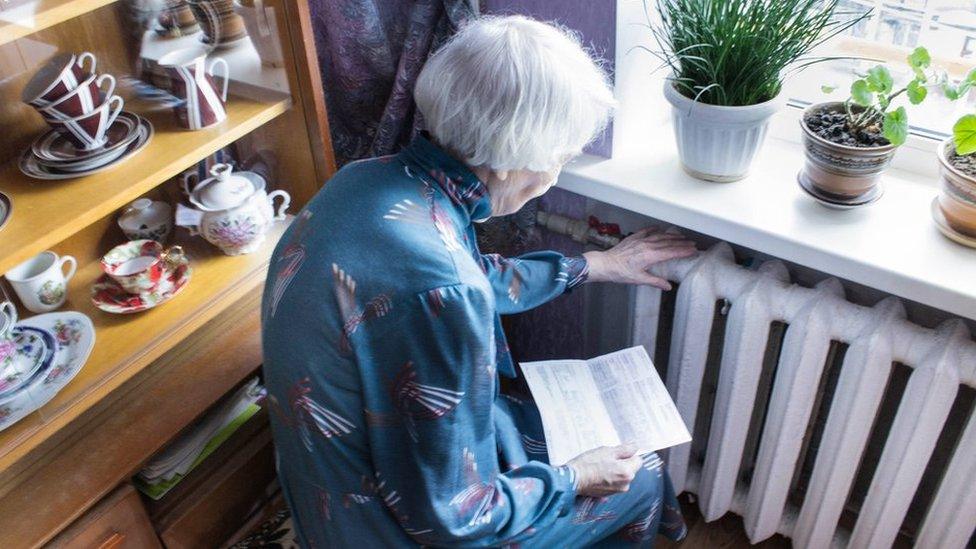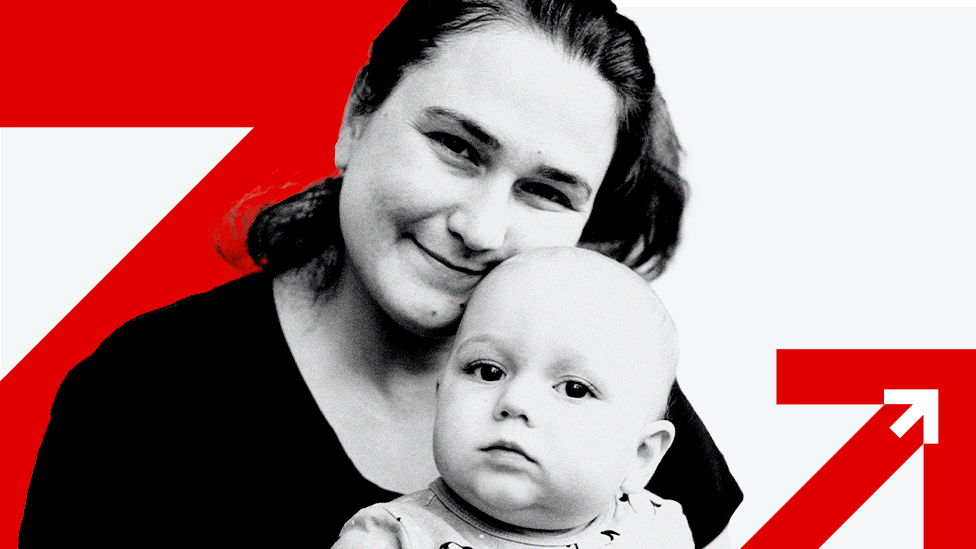Councils get more money to help struggling households
- Published
- comments

Councils in England are being given further funds to help vulnerable households from the start of April.
The Household Support Fund will give each local authority in England a share of £842m, to try to help those struggling the most with rising prices.
Information on getting hold of the new funding should be updated on each council website over the coming weeks.
It is up to each council to decide how they spend the money, with very different approaches being taken.
One has chosen in the past to order affordable food boxes, while another has delivered energy saving packs including air fryers and slow cookers.
A sum of money has been given to councils every six months since October 2021, and is supposed to help plug the gaps in support for struggling households.
This latest government funding is supposed to last for a year, but in some areas, demand has been so high that the money in previous rounds has run out within a matter of weeks.
The surge in prices over the past year has squeezed the finances of many households. Inflation - the rate at which prices rise - still remains near a 40-year high.
Councils have chosen lots of different methods to give out the money.
Blackpool Council set up a market voucher scheme where households with children and pensioners could receive vouchers for fresh food from the local markets.
Wokingham Council delivered 650 energy saving packs, including air fryers, slow cookers, heated blankets, thermal clothing, draft excluders, and LED lightbulbs.
Blackburn Council have bulk-ordered food via a distributor for affordable food boxes, while Derbyshire Council has sent out vouchers to be cashed after applications are made by schools and health professionals for households most in need.
Many councils have decided to focus the support, and those with large families, single-parent households, older people on a low income or those with a disability have been beneficiaries in some areas.
Authorities in the poorest areas receive proportionately more, and devolved nations will be given equivalent funding.
Birmingham gets the most and is due to receive more than £25m in April, while £22m will go to Kent, Lancashire will get £19m and Essex will receive £18m.
Although April's funding is twice as much as the amount given over the past six months, it is supposed to last for a year and there is likely to be higher demand as the rising food and energy prices through the winter mean more people are now considered vulnerable.
Related topics
- Published15 February 2024

- Published3 January 2023

